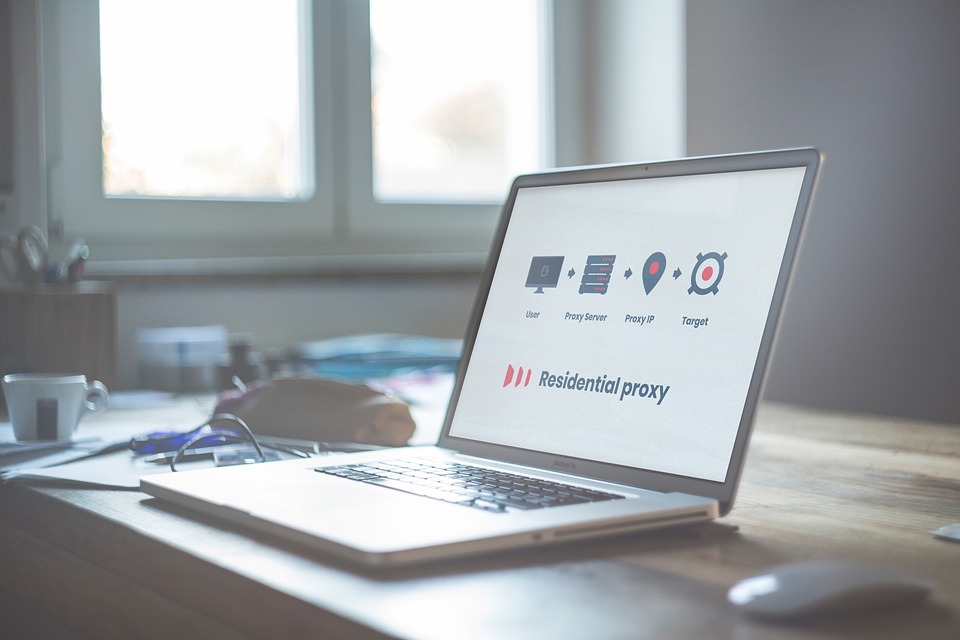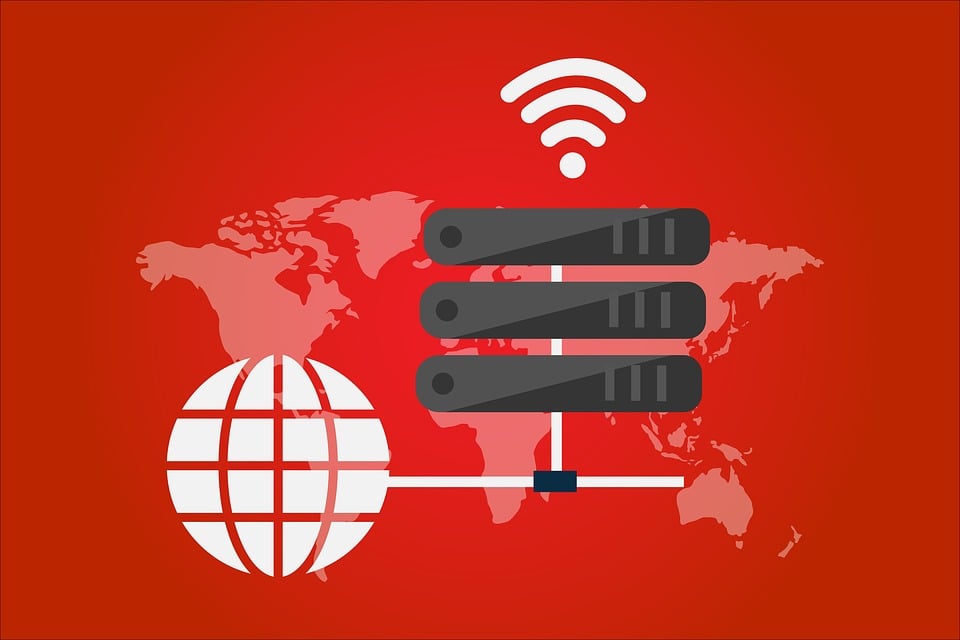Residential Proxies: How to Use Them in the Most Effective Way?
Proxies are among the most demanded services for common browsing or solving various business issues. At the moment, there are over 1,000 proxies used in 54 countries. The number grows rapidly as well as the variety of proxy types.
Despite the increasing popularity of these services, it’s still difficult to navigate this diversity. What is a residential proxy? How does it differ from other proxy types? When and why do you need such a service? How to use residential proxies? We’ve prepared a detailed description of residential proxies to address these questions. Here, you will learn their peculiarities, strong and weak points, and the way to use them more effectively.
What are Proxies?
A proxy server is a remote computer that has a particular IP address and location and allows you to use these data instead of your own. Mainly, proxy servers are divided into transparent and anonymous. Transparent proxies keep your IP address visible to others. Anonymous proxies hide your information. But of greatest interest for us are anonymous proxy servers.
What are Residential Proxies?

A residential proxy is an intermediary IP address issued by an internet service provider and borrowed from real users. In other words, it is an existing real device to which you can connect and hide your real data and location.
Choosing an Appropriate Server: Residential vs Datacenter Proxy
When searching for a proxy server, users often face a difficult choice: residential or datacenter server? What is the difference between them? Let’s figure it out.
Datacenter server
Datacenter proxy is an intermediary IP address owned by data center vendors. There are 4 types of data center proxies:
- Public – can be found online free of charge but are useless and insecure for managing data. The number of unfamiliar people using a public proxy is rather big.
- Shared – owned by a small group of users. It is rather cheap but can be blocked due to the inherent nature of using it.
- Private – belongs only to you but for certain domains and for a limited time.
- Dedicated – gives you rights to use a particular IP address but for a finite time.
| Strong points | Weak points |
| Fast and stable | Few locations |
| Affordable | Simple to detect |
| Shared and private forms | Inconvenient in use |
| Unlimited traffic |
Residential server
Unlike datacenter ones, residential proxies offer a pool of unique IP addresses. Instead of your IP address, you are assigned a newly available one from that pool. Each IP has a specific set of information about the location that makes them look like a real internet user. Thus, you may appear in the desired location without moving there physically. That makes this proxy type the best variant for deep research and makes it secure and uninterrupted. There are 2 forms of residential IPs:
- Rotating – IP addresses change according to criteria set by you. Each minute you will be assigned a new IP which is very useful for web scraping.
- Static – The IP address you’ve chosen will remain the same until you disconnect from it. It provides a secure connection and full anonymity.
| Strong points | Weak points |
| Highly anonymous | Can be slow because of the internet connection |
| A big pool of IP addresses | The connection can be patchy |
| Easy to manage | Only shared IPs |
| Rotation form |
Differences in setup
Depending on the server type you’ve chosen, there can be several differences in setup. Datacenter proxies from time to time get under a block, so you can set them up to switch IP addresses automatically. As for residential proxies, they offer both static and rotating options. If you care mostly for privacy, choose the static form. If security and anonymity stand in the first place for you, choose the rotating form.
Here, you can get additional information about residential and data center proxies. This small visual guide can ease your choice and make things clearer.
Residential Proxy Use Cases

Proxies become more and more demanded since they expand the sphere of their possible usage. Here are the common cases that require residential proxy for the most effective solution.
- Data gathering
Residential proxies are the best tool for data gathering that is commonly used in research. For the research to be statistic-based, scientists gather information from the internet. To ease the search, they often use a program called scraper. It is a robot that does browsing for you and collects the information you ordered it to gather.
Most website owners strictly watch for their data to be insecure. If they notice any sign of scrapping, they ban the IP address. Rotating residential proxies easily cope with this task. They change your IP address with every sent request. Thus, you can hide your scrapping activity and avoid restrictions.
- Marketing research and content management
To remain competitive and relevant, the marketing strategy should be based on high-quality data. With residential IPs, marketing specialists can spy on competitors’ business solutions.
This tool allows specialists to check the content and ads offered by a company to the target audience in a particular location. Thus, they evaluate the operability of this solution and compare it to their ideas. It is a good way for getting inspiration and developing a new strategy.
Besides, they can help you in verifying the ads you’ve created. By changing your visual location, you can see whether ads operate well and reach the audience you aim at.
- Price aggregators
Price aggregators face the same problem – data gathering. To deliver their users actual, true, and reliable information about prices, they need to search for data constantly. Residential IPs are the best solution for price aggregators to access all the websites they need. It is the most effective way to bypass restrictions.
- Search Engine Optimization
For SEO specialists, residential proxies can be useful in controlling the ranks of a website. Verifying ads from different locations is also used quite often. Besides, specialists use it for checking the competitors’ strategy and getting helpful insight.
- Academic research
Those who perform academic research, need access to all information that may be required for the work. These servers help researchers to eliminate all limits and verify the data. Thus, they see whether it looks the same from different locations or not.
- Testing
Specialists use residential IP addresses for checking the quality of services they’ve developed. This tool helps them to understand whether their service works regardless of location or not. Besides, they are useful for managing traffic and checking data security.
- Brand protection
Besides, they help a lot in detecting malefactors that intend to harm the brand. The search for infringement cases and gather proof for the violation of intellectual property.
Understanding Ports When Setting Up Proxies
As soon as you’ve set your mind on a particular proxy type that meets your requirements, you need to find out the port you’ll be using. Ports sort the network traffic the device receives. For different applications to share network resources simultaneously, there are port numbers. They distinguish between message senders and recipients in a network.
To set up your proxy, you need to choose a particular port. The current port is situated in browser settings, where you will find the proxy section. The port you see there might determine the way you set up the server.
There are three types of ports you may need to use: HTTP, HTTP(S), and SOCKS.
HTTP
HTTP proxies are the most demanded and have 3 standard ports: 80, 8080, 3128. These ports are best for data filtering and speeding up website downloads.
HTTP(S)
HTTP(S) proxies are similar to HTTP ones. The difference is that they have better security and SSL support. The used ports are the same: 80, 8080, 3128. They suit better for transferring personal information because the HTTP(S) protocol is encrypted.
SOCKS
SOCKS provides two protocol types: SOCKS4 and SOCKS5 support more connections. Unlike SOCKS4, SOCKS5 supports more connections. The offered ports are 1080 and 1081. This port type can be used for browsing, sending files, and so on. They let users access more services and provide a higher level of security.
Using the Residential Proxy

Residential proxies are the best solution for you to keep data secret and overpass restrictions. They are simple in use but you need to know some peculiarities of their setup.
Getting a Proxy
Before you start working, you need to get data for accessing the server. You can take this data from specialized sites that provide such services. The structure of the data received from different internet service providers differs. Nevertheless, the composition remains unchanged. This is the IP address, connection port, username, and password.
- For example, 183.120.238.130:8080@user:hf74ju4
In the first part (before @) we see the server address, and after the colon – the port. The second part is also separated by a colon, the username, and the password.
This structure is used to load lists into various programs that can use a large number of proxies in their work. Usually, this information is presented in a more convenient form.
Setting Up a Proxy on Network
For ease of use, server providers offer detailed instructions for setting up.
To set up a proxy on your device:
- Go to the system settings and click on the network section.
- Select the automatic configuration and an appropriate server type.
- Enter its data – IP address and port.
- Select this option and fill in the necessary data if the server supports login and password authorization.
- Click OK to save settings.
Of course, some browsers have some differences in functionality. That’s why it is essential to follow the specific section of the instruction and double-check everything. If you have some problems with installation, ask the provider for help.
In case, you do not need the proxy server working, you can turn it off going back to browser settings. It will bring you back your real IP address.
Enabling the Proxy
As you’ve installed and set up the proxy on your device, you can enable it through your provider. Thus, other authorized users won’t be able to use your residential IP address to contact the internet.
There are three ways to authorize. You can log in via:
- IP address
- Username/password
- SOCKS
You can set up the logging process in the following way:
- Enter your proxy’s platform
- Choose the authorization type that suits you best
- Add your IP address
Within half an hour the platform will change the authorization type and all proxy servers will be ready for work.
Fixing Geolocation
Every IP address has a physical location and geolocation.
- Physical location is the place where the proxy server is. For example, Chicago proxy servers have IP addresses located in Illinois.
- Geolocation is the information about the current location of an IP. Moving from one region to another, you do not change the physical location of the server, but just its geolocation.
So, your location does not affect the quality of proxy server work. But if you test the server with a third-party tool, the geolocation mentioned there might differ from those you’ve selected. It happens because the tools indicate the physical location, but not the geolocation.
You can set the geolocation manually or automatically set the server to the ‘mixed’ option. With this option, you will be assigned a random place where your IP address exists.
Residential IP Pools
How do providers build IP pools?
There are three ways for providers to build a pool of residential IP addresses:
- Make end-users share their internet resources with the usage of SDK (a code part used in browser extensions and apps)
- Buy traffic directly from real people
- Lease IP addresses from ISPs (Internet Service Providers)
The pool size
The size of your proxy pool depends on several factors:
- The number of requests you make per hour.
- Targeted Websites: the larger website is the larger pool it will require.
- The type of IP addresses that you use as proxy servers: datacenter, home, or mobile IP address.
- The quality of the IP addresses you use as proxies. Datacenter IP addresses tend to be of lower quality than IP addresses for home and mobile devices. However, they are often more stable than IP addresses for residential systems due to the nature of the network.
- The complexity of your management system is IP rotation, traffic regulation, session management.
Each of these five factors has a big impact on the effectiveness of your proxy pool. If you have incorrectly configured the server pool, your IPs will likely be blocked. As a result, you won’t be able to access the target website.
Legal considerations

When using a proxy, you should take into account the legal aspect. Is it legal to use proxy servers? Yes, it is. However, you need to remember a few things not to fall under restrictions.
Having the ability to send a huge number of requests while remaining anonymous, people begin to abuse this function. As a result, we have the website servers overloaded with requests. If you use a proxy IP address, you should always respect the websites you scan. Regardless of the scale or complexity of your project, you should always follow the recommendations for proxy usage. Make sure that your bots do not overload websites.
In case a website informs you that the site scraping is undesirable, you should limit the number of requests or stop scanning. As long as you follow the rules, the probability of getting under restrictions lows down significantly.
If we talk about data gathering in Europe, there is another important legal issue to remember. Do you have the explicit consent of their owners to use these addresses for scraping web pages? GDPR, the regulation of data protection issued by the EU, defines IP addresses as personal information. Make sure that all European IP addresses that you use as proxy servers comply with GDPR. In other words, you need to get explicit consent for the usage of someone’s IP address as a proxy server for scrapping.
If you have your IP address, you will need to process this consent yourself. However, if you receive a proxy from a third-party provider, make sure that they have such consent and it complies with GDPR.
Conclusion
Residential proxies become a good solution for data scraping and everyday internet browsing. Depending on your needs, you are free to choose the pool of IPs and proxy type you require – static or rotating. Do not forget about hidden legal pitfalls that await users on the internet. Follow the terms of proxy usage and do not overload the websites.
